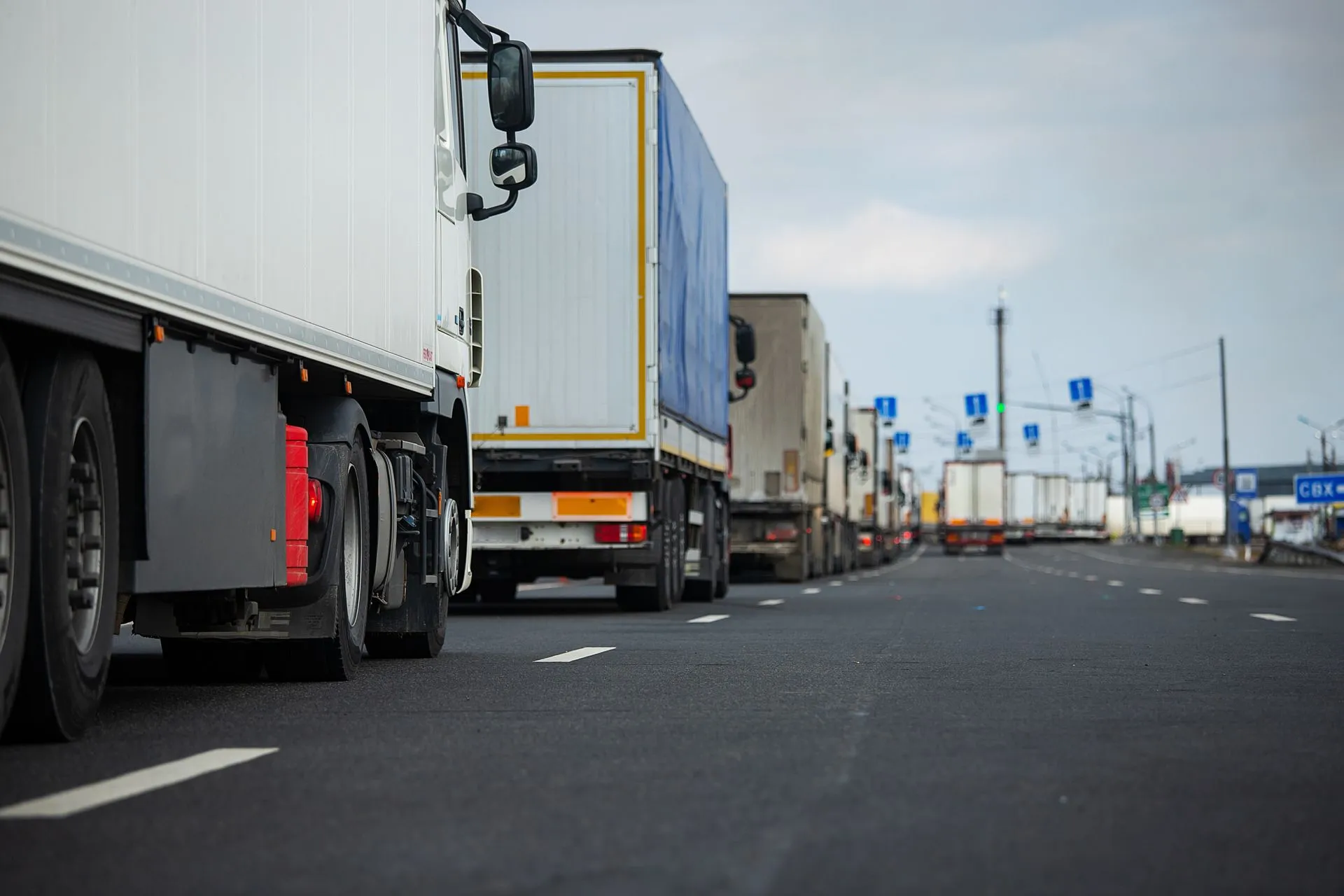Here's the text extracted from the image:
---
EORI offers a ray of hope in difficult times
The bad news, as far as customs in 2024 is that 2023 might well have been as easy as things were likely to get, says Robert Hardy. But the slightly better news, says the founder and chief executive of clearance experts EORI Group, is that there is now perhaps enough of a critical mass of clearance work to promote innovation and invention in the sector, which should help to make things simpler again.
“During 2023, customs clearance settled into a little groove,” he explains. “The process got as good as it could be.”
EORI continued to push customs simplifications among the trade, urging them to use various measures rather than full frontier declarations whenever possible. These boost accuracy because information does not have to be supplied during a tight time-window but instead as a part of a follow-up process. “It all helps to de-stress operations at the frontier itself,” Hardy explains.
He says that in the three years after Brexit in 2021, the trade has been operating in “survival” mode. Many traditional customs brokers and intermediaries didn’t really invest in the lead up to Brexit, and the result was a shortage of customs clearance capacity. With freight forwarders unable to find brokers to carry out the greatly increased number of clearances, many took the DIY approach and created their own customs clearance departments, training staff and investing in software.
“That solved the immediate problem in 2021, and it also created an uplift in freight forwarder revenue,” Hardy explains.
However, these forwarders were not customs brokers in the full sense as they only cleared goods that they themselves were carrying which constrained the size of their customs operations.
Predictably enough, the surge in customs-related revenues for forwarders enjoyed in 2021-22 has flat-lined now. Moreover, many of the forwarding staff who were seconded into customs roles have become bored with the repetitive nature of the work, so recruitment is becoming a problem. “It’s rather a conundrum,” Hardy says. “The people most able to do the job are often those who are least likely to want to do it.”
EORI has though been promoting its value-added services to forwarders, in particular its CABIE (Customs and Borders Import Export) service that makes the whole process of lodging a declaration much quicker and simpler for operative and which allows the forwarder to take on additional clearance work without massively increasing overheads. It is offered to forwarders as a white label service, allowing them to market it to their customers as their own customs solution.
CABIE is backed up by a 170-strong, 24-hour team of customs experts.
EORI is also looking into the possibilities of Artificial Intelligence. While AI is much-hyped - a lot of it is really little more than OCR (optical character recognition) software that has been around for decades - Hardy has high hopes of a new partner that has “nailed the functionality really well”.
The industry will need all the technological help it can muster from next year onwards, because there are changes afoot that will make the customs clearance process tougher than during the past three years, which was essentially a transition period.
For example, Ireland to Great Britain (GB) trade has been allowed to operate on the basis of customs entries being deferred for up to 175 days. However, this concession is being withdrawn on 31 January 2024, which means that exports will no longer be allowed to leave the Irish port without necessary documentation being in place. In fact, the 175-day concession created a situation in which no one really bothered too much about whether customs clearances were done or not, so imposition of controls will come as a shock at the end of January, Hardy predicts.
EORI will however be able to offer traders a little leeway after that date a five-day window under the SCDP (Summary Customs Declaration Procedure), formerly known as CFSP (Customs Freight Simplified Procedures).
Another coming challenge in 2024 will be SPS (Sanitary and Phytosanitary) physical controls on GB imports from April (or October for the Irish Sea trade when border control posts will be ready) while, from 31 January, Export Health Certificates will be required for medium-risk food exports from the Europe to UK (a stricter requirement for high-risk goods such as live animals). Medium risk exports are typically goods like raw or unprocessed meat or unpasteurised milk or cheese.
Talks are ongoing with the UK government about the level of Common User Charge for SPS checks.
Safety and Security declarations will also be finally introduced for GB imports in October 2024, this particular can having been kicked down the road several times, but this time it will probably be adhered to. It should be a relatively simple declaration with no HS (commodity) code required and in so far as it goes, should have minimal impact, says Hardy.
But, at the same, the European Union will be upgrading its own safety and security checks to the new ICS2 version for all traffic (it is already in place for airfreight and parcels) and this will require a six-digit commodity code to be entered, by the carrier.
“In a ro-ro environment, HS codes are not a great idea,” Hardy comments. “Where is that data going to come from? In fact, it would be far better if the importer did the declaration on behalf of the carrier, with a suitable indemnity in place.”
ICS2 formally comes into force in March 2024, but with an implementation window of up to 200 days for the member states.
For anyone who is baffled by what all the different changes mean and the various dates of their implication, EORI has produced a simple checklist chart that, mercifully, fits onto a single page.
EORI offers a ray of hope in difficult times
|
4
minute read | By Freight Business Journal



